News
-

- Seoul Wins Red Dot Design Award for ‘Seoul Metro Map’ for Two Consecutive Years
- 등록일 2024-11-06 글쓴이 seoulsolution
- The Seoul Metro Map honors in the Brands & Communication Design category, following last year’s award for S(e)oul Drops. It is recognized across multiple aspects for its consideration of vulnerable groups, including the elderly and individuals with color vision deficiencies, as well as for excellence in design. The Seoul Metropolitan Government (SMG) has won the Red Dot Design Award, one of the world’s three major design awards, in the Brands & Communication Design category for two consecutive years. Following last year’s awards for the S(e)oul Drops and Seoul Light DDP, this year, the Seoul Metro Map, which is easy to see and read for everyone, has been selected as a winning entry. The Seoul Metro Map, which won the award this year in the Brands & Communication Design category, was newly developed by the SMG after 40 years. It has received international recognition for its consideration of the vulnerable, such as the elderly and those with color vision deficiencies, as well as its excellence in design. After developing the Seoul Metro Map last September and conducting experiments with both domestic and international users, the city found that the time required to find stations was reduced by up to 55%, while the time needed to navigate transfer stations decreased by up to 69%. For international users, the reduction in time was approximately 21.5% greater compared to domestic users, indicating a significant improvement. Meanwhile, the Seoul Metro Map has also been recognized with an Excellence Award in the Best Practice category at the 2024 Korea Public Design Awards, organized by the Ministry of Culture, Sports and Tourism and the Korea Craft and Design Foundation.
-
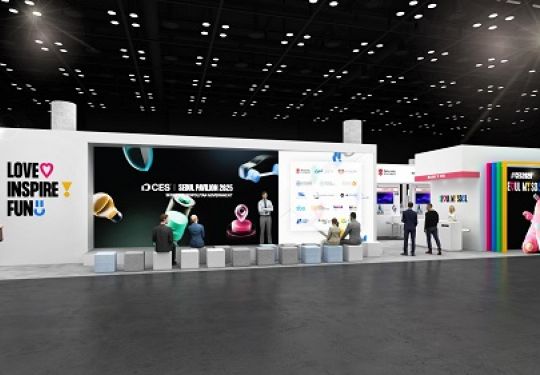
- Seoul to Host Largest-Ever Seoul Pavilion at CES 2025 and Achieve Most CES Innov..
- 등록일 2024-12-18 글쓴이 seoulsolution
- From Jan. 7 to Jan. 10, 2025, Seoul is going to showcase a 1,040㎡ exhibition booth at CES 2025, 1.5 times larger than last year’s Among the companies participating in the Seoul Pavilion exhibition, 21 recipients of CES Innovation Award consulting are expected to win CES Innovation Awards The Seoul Metropolitan Government (SMG) is set to operate its largest-ever exhibition booth for advanced startups based in Seoul at Consumer Electronics Show (CES), the world’s premier consumer electronics and information communication technology (ICT) event. The SMG announced that from Tue, Jan. 7 to Fri, Jan. 10, 2025, it will host the Seoul Pavilion at Eureka Park, the startup-focused exhibition hall of CES 2025 in Las Vegas, USA. The pavilion will cover 1,040㎡(315 pyeong in Korea), an expansion of more than 50% compared to the previous year. At CES 2025, the Seoul Pavilion will be the largest since Seoul first participated in CES in 2020, promoting a record-breaking 21 innovative companies from Seoul, including firms that have won Innovation Awards. Through CES 2025, the SMG aims to showcase its cutting-edge advancements in AI, lifestyle technologies, and healthcare, demonstrating the collective strength of its startup ecosystem. Additionally, the city plans to support startups’ entry into global markets through on-site programs, including investor matchmaking and international competitions.
-
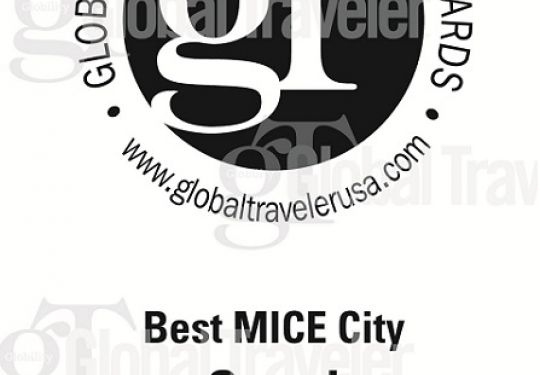
- Seoul Named “Best MICE City” for 10 Consecutive Years, Inducted into Hall of Fam..
- 등록일 2024-12-06 글쓴이 seoulsolution
- Seoul wins 2024 Global Traveler Tested Reader Survey Awards, along with prizes from the U.S. and Singapore in the MICE sector Active promotion of Seoul’s appeal through support for domestic MICE companies, overseas marketing, and local promotions has played a key role Efforts are focused on hosting global events in future-oriented fields like bio, medical, AI, and robotics, as well as established sectors like beauty and e-sports The Seoul Metropolitan Government (SMG) was named the “Best MICE City” once again this year, marking an impressive 10 consecutive years of winning the award. This recognition came after successfully hosting a series of high-profile international events, including the League of Legends World Championship Final, which was watched by hundreds of millions of fans worldwide; SEOULCon, where global influencers with millions of followers introduced the city through social media; and Smart Life Week (SLW), the Korean version of CES, along with numerous other events and group tours. ※ MICE is an acronym for Meeting, Incentive Travel, Convention, and Exhibition. The SMG and the Seoul Tourism Foundation announced that Seoul was selected as the “Best MICE City” for the 10th consecutive year in the 2024 Global Traveler Tested Reader Survey Awards, with over 300,000 votes. As a result, the city is to be inducted into the Hall of Fame. This year, Seoul not only won the Global Traveler award for 10 consecutive years but also achieved remarkable success by receiving prestigious MICE-related awards, including “Favorite Worldwide City” at the The Trazees (United States) and “Best Exhibition City (Asia)” at the M&C Asia Stella Awards (Singapore). The success of Seoul in establishing itself as an international MICE city is attributed to its systematic domestic and international marketing efforts. The SMG has provided comprehensive support for the attraction and hosting of related events through its MICE industry support program, “PLUS SEOUL”. In addition, Seoul promotes its appeal as a MICE city by participating in overseas exhibitions and conducting local promotions. The SMG also mentioned that it plans to focus on attracting MICE events in future strategic industries such as bio, medical, AI, and robotics, to reinforce Seoul’s image as a hub for advanced industries.
-

- 2025 Seoul Color: ‘Green Aurora’ Captures the Glow of Summer Nights
- 등록일 2024-12-04 글쓴이 seoulsolution
- Following the 2024 Skycoral, the second official Seoul Color is Green Aurora, a hue inspired by the everyday lives of citizens Green Aurora draws from the vibrant street trees of Seoul, illuminated by the soft glow of streetlights on the lush, green summer nights of this year Next year, the vibrant yet serene Green Aurora will color the heart of Seoul, embodying a sense of calm and comfort. The Seoul Metropolitan Government (SMG) announced that Green Aurora has been chosen as the city’s official color for 2025. Inspired by the green glow of Seoul’s street trees under streetlights during the long summer evenings of 2024, the color carries a message of reassurance and encouragement for citizens navigating the stresses of daily life. In November of last year, the SMG introduced the concept of selecting an official city color annually. For 2024, the inaugural color, Skycoral, was prominently featured in various events and city marketing initiatives throughout the year. The Seoul Color is chosen to reflect the daily lives and interests of its citizens. This year, a professional agency conducted in-dept research and analysis using AI and big data, focusing on key trends across culture, environment, technology, and lifestyle. Based on this research, the defining theme of “long summer” emerged as a representation of major issues and citizens’ lifestyles, shaping the selection of Green Aurora as this year’s Seoul Color.
Archives
-
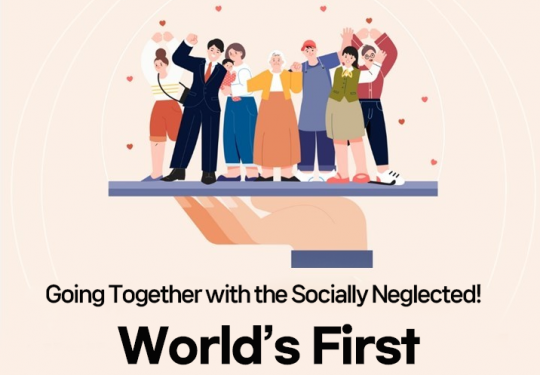
- Going Together with the Socially Neglected Index
- 등록일 2023-11-10 글쓴이 seoulsolution
- According to the World Inequality Report 2022 by the World Inequality Lab, income inequality worsened during the COVID-19 pandemic. The top 10% of the global population in terms of income distribution accounted for 52% of the global income, while the bottom 50% accounted for 8.5%. The worsening income inequality is exacerbating inequality and polarization across various social areas such as health, education, and housing, extending beyond the economic sphere. Furthermore, as new social risks, including demographic changes such as low fertility and population ageing as well as technological and economic changes due to digital transformation, continue to compound, the scope of vulnerability is continuously expanding for marginalized groups. Policy considerations for vulnerable populations are urgently needed, not only for those who are physically or economically disadvantaged, traditionally defined as socially vulnerable, but also for individuals whose opportunities in major life domains are relatively constrained due to emerging psychosocial risks, such as caregiving, emotional well-being, social isolation, and exclusion, highlighting the importance of addressing these issues as significant challenges. The Seoul Metropolitan Government (SMG) declared its “going together with the socially neglected” initiative in 2022 as a top priority in its overall policies to address inequality, polarization, and emerging psychosocial risks, with a focus on prioritizing the vulnerable. Furthermore, the SMG developed the Going Together with the Socially Neglected (GTSN) Index after a year-long research process. The GTSN Index is designed to diagnose vulnerability in various areas of citizens’ lives, including support for livelihood, housing and healthcare, from the perspective of the vulnerable. It serves as an indicator to evaluate the SMG's policy efforts to address these vulnerabilities. The index is structured to aggregate the performance indicators of each domain into a single index. This indicator and index system, which comprehensively assesses the performance of city-initiated policies from the perspective of the vulnerable and allows for practical utilization of the results in policy development and budget allocation, holds significant value. It can be considered a novel and distinct approach from traditional methods. < Encompassing 6 areas—livelihood and caregiving; housing; medical and health; education and culture; public safety; and social integration—with 10 tasks and divided into 50 detailed indicators > Through the operation of the GTSN Index, the goal is to early detect social risks in various areas of citizens’ lives, such as livelihood and housing, eliminating blind spots and enhancing policy effectiveness. The GTSN Index is structured as an indicator aimed at improving citizens’ lives in areas closely related to their daily lives, such as easing the housing burden for struggling young individuals, providing emotional support, and caring for the health of vulnerable elderly individuals who may even find it difficult to secure meals. The index is calculated with 2022 as the baseline, representing a value of 100, which coincides with the inception of the city's “GTSN” initiative. For instance, if the calculated index falls below the baseline value of 100, a thorough analysis will ensue to pinpoint the underlying causes. In the event that the dip in the index is attributed to heightened demand, the budget allocation will be expanded to accommodate increased support targets. Conversely, if project feasibility issues are identified, efforts will be made to enhance policy efficiency through targeted improvement measures. Each year, the systematically calculated index will be used as a basis to expand initiatives in areas where they are needed the most and to make improvements where deficiencies exist, ensuring that the most essential policies are pursued for the benefit of the citizens. In addition, the annual performance of the GTSN Index will be evaluated, and the results will be made public to the citizens.
-
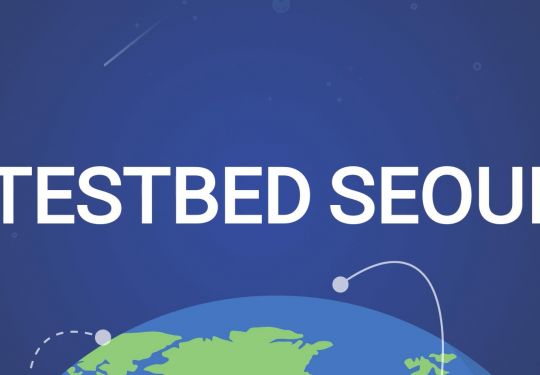
- [Video] Global Startup City, Seoul_startup-friendly policies
- 등록일 2023-02-13 글쓴이 seoulsolution
-
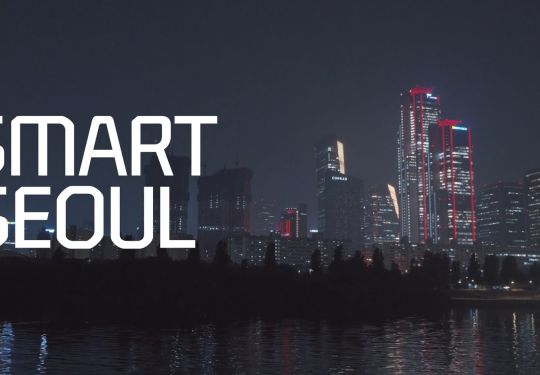
- [Video] Smart City, Seoul_smart city policies
- 등록일 2023-02-13 글쓴이 seoulsolution
-
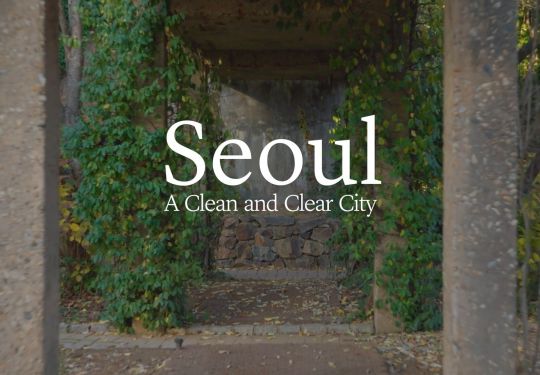
- [Video] Clean and Clear City, Seoul_environmental policies
- 등록일 2023-02-13 글쓴이 seoulsolution
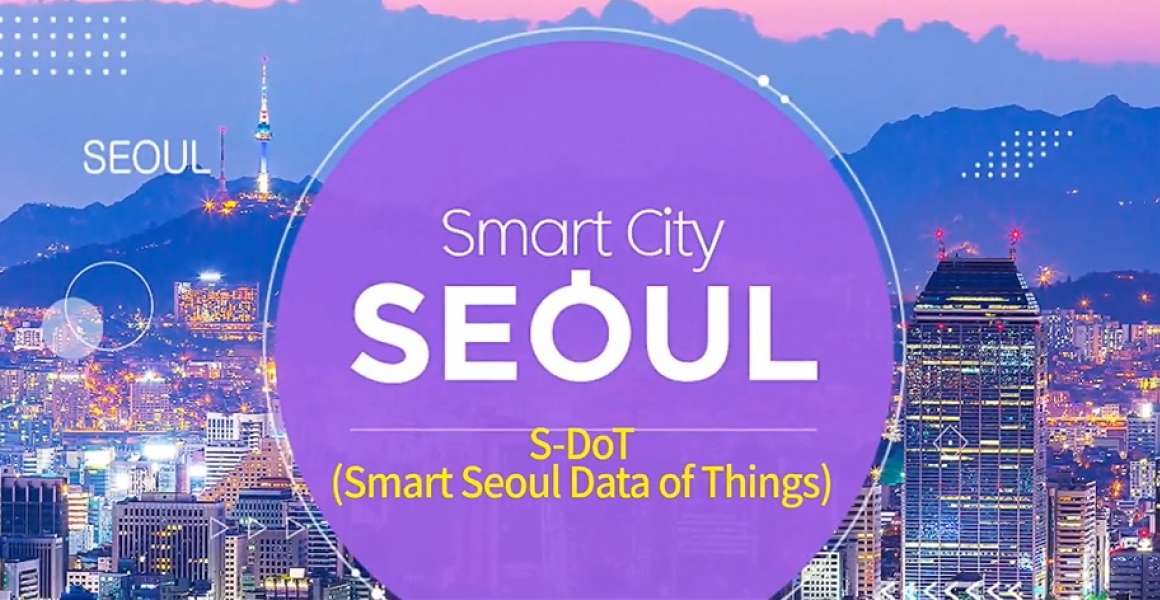 Seoul's Smart City (Smart Seoul Data of Things)
Seoul's Smart City (Smart Seoul Data of Things)
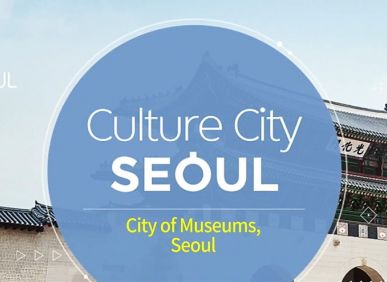 [Cultural Heritage & Tourism]City of Museum, Seoul
[Cultural Heritage & Tourism]City of Museum, Seoul
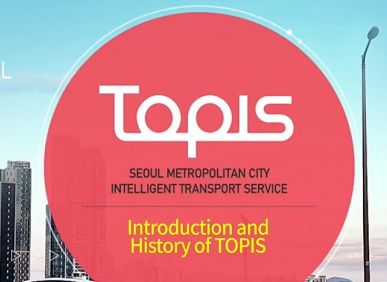 [Transportation]Seoul Transport Operation & Information Service: TOPIS
[Transportation]Seoul Transport Operation & Information Service: TOPIS
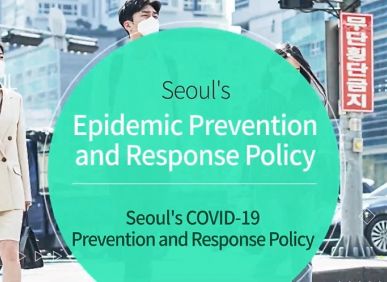 [Against COVID-19]Seoul’s Epidemic Prevention and Response Policy
[Against COVID-19]Seoul’s Epidemic Prevention and Response Policy





